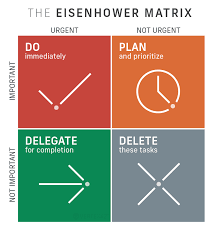🕯 Grief in the Air: Supporting the Silent Responders in the Wake of Tragedy
- Prashasti Kaustubh
- Jun 13, 2025
- 2 min read

The past few months have been terrifying and grief-ridden for India. And today, we mourn one of the most devastating tragedies in recent memory — the loss of 241 lives aboard the ill-fated Air India flight.
For those unaware, the aircraft crashed into the Boy’s Hostel of one of India’s premier government medical colleges — a place that, ironically and heartbreakingly, also became the emergency care provider for the injured. Students, canteen workers, and campus residents may have been among those harmed.
While the nation grieves the passengers lost, there’s a quieter grief unfolding in the halls of this very hospital: the doctors, nurses, medical students, canteen staff, and Air India ground teams are shouldering a devastating emotional load. They’re saving lives, identifying the lost, consoling the grieving — all while silently mourning and, in many cases, wondering: “Why not me?”
As a coach, psychologist, and more importantly, as a fellow human, I found myself asking: Who is supporting them — the ones who are keeping everyone else going?
So I wrote this. A 5-point guide — not just for managers or HR leaders — but for anyone who wants to hold space for a colleague, team member, or fellow responder navigating grief in real-time.
5 Ways to Support Each Other Through Collective Grief
1. Acknowledge, but Don’t Intrude
Offer words like: “I’m here if you want to talk,” or “This must be a lot. I see you.” But remember — grief wears many faces. Some may need connection, others may need space. Let people choose.
2. Co-Regulate, Don’t Carry It Alone
When you’re overwhelmed, find someone who can hold space for you. Then, when they’re low, be that person for them. We aren’t meant to hold sorrow alone. And in crisis, shared regulation = survival.
3. Normalize Emotional Responses
Tears. Silence. Numbness. Rage. Confusion. All are valid. Let’s stop saying “stay strong” as a default. Let’s say “feel what you need to” instead.
4. Make Mental Health Support Tangible
If possible, have a trained counsellor or crisis responder onsite — especially for students, frontline staff, and grieving families. Even a single session of containment can prevent long-term psychological harm.
5. Take Micro-Restorative Breaks
Grief doesn’t clock out, but neither should your body or spirit collapse. Drink water. Breathe outside. Cry in a colleague’s arms. Rest without apology. These are not luxuries — they are non-negotiables for those holding the world together.
🕊 To the Helpers, the Hidden Grievers
If you’re a medical student suturing wounds today after losing a classmate last night —If you're an airline staffer watching names turn into press releases —If you're a hospital worker holding both scalpels and silence —
You are not forgotten. You are the reason healing happens. And I hope someone is holding space for you today.
If you are in a position of leadership — in healthcare, education, or corporate spaces — and want to create trauma-informed systems of support for your people, I invite you to connect.
🟢You can Schedule a free of cost compassion call by writing an email available in the contact section.
Because grief shared is grief lessened.



Comments